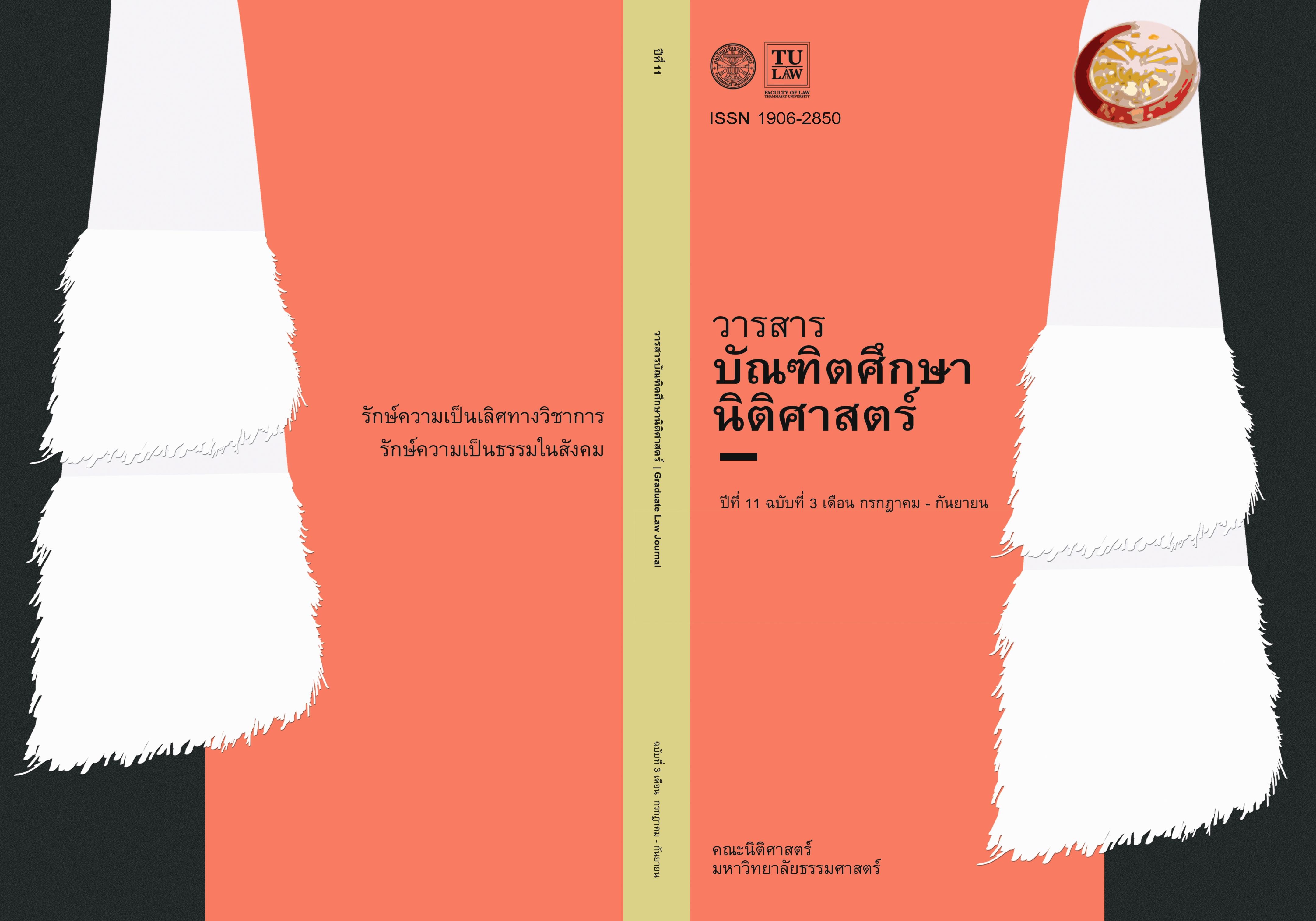LEGAL PERPLEXITIES OF LETTERS STIPULATING CIVIL SERVICE OPERATIONS GUIDELINES
Keywords:
guiding, circulation letter command, principles of power separation, regulations, other general provisions that are enforced generally without specifying particular cases or personsAbstract
In the course of carrying out administrative duties, there is exercising a type of power regarded as “discretionary power”. This legal power allows the administrative officials to consider facts and to apply them to laws before deciding to take any administrative actions under legal principles of suitability, fairness, proportionality or necessity, based on facts of each case. However, given the same facts, the outcomes of exercising discretionary power may sometimes be various, among individual officers, or in different locations, or not in accordance to same directions. These issues seriously affect the harmonization of
the administrative actions and demonstrate the lack of unity in performing administrative duties which is against to the principles of integrity, legal certainty and equality.
As a result, they lead to granting power to chiefs of administrative departments, agencies with legitimate power, law enforcers, or administrative officials to stipulate their duties guidelines which are generally referred to as “letters stipulating civil service operations guidelines”. The objective of this guideline is to standardize administrative actions according to the principles of administrative organization of state by explaining the concerns, or solving problems arisen from performing duties, interpreting provisions of laws, providing frameworks or directions, guiding operations or judgements of the officials into the same directions which make administrative operations processes predictable and accountable to the public.
The letters stipulating civil service operations guidelines have had important parts to the administrative operations since they have direct binding for the administrative officials to comply as regulations, or internal measures, otherwise they may inflict disciplinary penalties in
the case of contravention, but it doesn’t bind people who are outside
the administration to follow. Nowadays, however, content of the guidelines has extended coverage which establishes new content or revise existing principles of laws issued by legislations, particularly in the cases that unavoidably have negative impacts, or damages to status of rights and duties of the people, or intend to legally enforce its content generally as regulations that are established solely under the administrative authorities. This constitutes a legal problem concerning authorities, or source of the letters stipulating civil service operations guidelines which are in conflicts with the principle of power separation, considered as unlawful acts, or unsupported by legal basis to act. This situation is different from promulgation of other regulations in Thai legal system, which will merely be actionable if parent laws grant power to enact specific subordinate laws.
Besides this, the positive aspects of the letters stipulating civil service operations guidelines in civil service operations is that they serve as handbooks assisting in standardization of administrative duties. On
the contrary, it is the boundary that limits discretionary power of working level officers, making them unable to consider differently from the frame or guidelines stipulated in the letters. Therefore, it is important to balance the compliance to the letters stipulating civil service operations guidelines as working rules and as public law performance principles that the letters must not curtail discretionary power of administrative officials in considering administrative processing for each case.
The main objective of this thesis is to study the general consideration of the letters stipulating civil service operations guidelines, their legal status and results of the letters to the administrative officials and the people. It also includes the principles of which administrative courts refer to in examining legality of the letters, in order to separate the scope of issues under determining power of the executive branch from regulations and internal measures of the administrative branch. Moreover, issues that should be in jurisdiction of the judiciary, as the letters stipulate guidelines are enforced as regulations or affect people’s rights and duties. Therefore, the administrative courts deserve to have roles in verifying legality to prevent & protect those whose rights affected from the letters stipulating civil service operations guidelines and to terminate the letters to forbid any future reference or usage basis in administrative orders or processes.
References
ชัยวัฒน์ วงศ์วัฒนศานต์. กฎหมายวิธีปฏิบัติราชการทางปกครอง. กรุงเทพมหานคร :
จิรรัชการพิมพ์, 2540
บวรศักดิ์ อุวรรณโณ. กฎหมายมหาชน เล่ม 3 ที่มาและนิติวิธี. กรุงเทพมหานคร : สำนักพิมพ์นิติธรรม, 2535
วารสาร
ปิยศาสตร์ ไขว้พันธุ์. “การควบคุมความชอบด้วยกฎหมายของกฎโดยศาลปกครองฝรั่งเศส.” วารสารวิชาการศาลปกครอง. ฉบับที่ 2. ปีที่ 5. (พฤษภาคม-สิงหาคม 2548) : 25.
เอกสารอิเล็กทรอนิกส์
หนังสือสำนักเลขาธิการคณะรัฐมนตรี ที่ นร 0503/ว 106 ลงวันที่ 11 พฤษภาคม 2558
เรื่อง มาตรการในการกำกับดูแลการใช้ดุลพินิจของเจ้าหน้าที่ของรัฐ.
www.cabinet.soc.go.th/doc_image/2558/993135281.pdf,
18 มกราคม 2560.
ศุภวัฒน์ สิงห์สุวงษ. “ข้อความคิดและหลักกฎหมายเกี่ยวกับ “แนวทางปฏิบัติ”
ในการออกคำสั่งทางปกครอง. http://web.krisdika.go.th/data/
activity/act187.pdf. 22 ธันวาคม 2557.
Downloads
Published
Issue
Section
License
บทความหรือข้อความคิดเห็นใด ๆ ที่ปรากฏในวารสารบัณฑิตศึกษานิติศาสตร์เป็นความรับผิดชอบของผู้เขียนบทความโดยเฉพาะ คณะนิติศาสตร์ มหาวิทยาลัยธรรมศาสตร์ และกองบรรณาธิการไม่จำเป็นต้องเห็นด้วย



